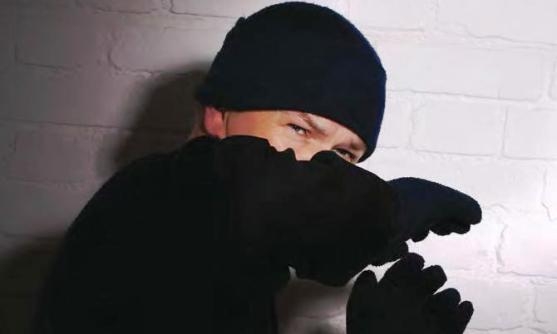James Kelly, Chief Executive at the British Security Industry Association (BSIA) explains how to own the night this winter.
Making sure your business’ security is up to scratch this winter is a good idea for a number of reasons. Here, James Kelly, explains why this is the case and provides key advice on how to use security systems to save costs, as well as protect your staff and business during this winter season.
During the cold season the UK reportedly sees a 20% increase in crimes, possibly because increased hours of darkness helps provide an essential cover to burglars and thieves, with premises often left unoccupied for longer periods of time due to festivities and holidays. This is also the time when individual members of staff or lone workers may find themselves walking through vulnerable areas of your premises in the dark, putting their personal safety at risk.
Making sure business premises are well secured means taking active steps to prevent crimes such as vandalism, theft, attacks and intrusions that could threaten your business and staff.
There are also added value benefits when implementing new security measures. With low occupancy rates and a shift towards cost-savings and sustainability, smarter security can also work with Building Energy Management Systems (BEMS) to reduce energy usage.
Starting from the outside
Sturdy physical security solutions such as fences, locks and barriers are all well-known methods that can be very effective in protecting the perimeter of business sites as well as the building itself. This is true at any time of the year, but particularly during darker nights, where a lack of light means intruders can go unnoticed more easily. The greatest advantage of using these solutions is that they provide a visual deterrent as well as an actual physical barrier that will slow intruders down considerably - if not put them off completely - giving on-site security personnel time to respond to any activity.
Integrating these solutions with detectors that trigger intruder alarm systems can provide an extra layer of security by helping warn off unwanted visitors as well as notifying personnel or neighbouring facilities of the intrusion. But in order to be effective, all these products need to be regularly reviewed to make sure they are meeting the needs of constantly evolving premises, and that they are always turned to the vulnerable areas of the site that require attention.
Adjusting the settings
CCTV cameras are another solution widely adopted by businesses across the country. Newer developments such as infrared thermal imaging and Remote Video Response Centres (RVRC) are making the technology more effective than ever, particularly in the dark, by alerting on-site personnel or remote control rooms of breaches in real time, allowing for a quick response.
CCTV solutions only work if correctly employed. With the start of winter it is important to adjust the settings and position of the cameras to match the change in natural lighting. For example, the lower winter sun may result in a glare shining directly into a camera, making the recordings unusable. Readjusting the position of the camera is important to avoid this.
Moreover, if the remote monitoring and lighting systems are controlled separately, the timer on the lighting must be adjusted once British Summer Time ends. If these systems are out of sync, it may be some time before the lighting switches on, creating an unwanted gap in the footage that intruders could take advantage of.
Looking out for staff
Lighting is not important only to enable CCTV cameras to function properly during the hours of dark. Motion sensor security lighting can be an immediate deterrent to thieves and can help alert security personnel of movements in vulnerable areas. Moreover, fixed lighting in dark and ample spaces, such as car parks, is important to make members of staff feel safe when walking through in the dark evenings. Making sure the settings are adjusted so that no time of night is left uncovered is once again an important, yet quick, precaution that all businesses should take.
Going one step further, as protecting staff is a key prerogative for any business, lone worker security alarms are also a great way to ensure the safety of those who may be required to work long hours alone in unoccupied or dark areas.
More than just security
Technological advances and clever integration means that security systems are increasingly being used for more than just security. Perhaps underestimated is the role that solutions such as access control can play in helping businesses save energy in a season where the need to heat buildings despite low occupancy rates are driving energy bills up.
Access control is used to monitor the movement of people, assets and vehicles in and out of a building, allowing for secure control over a site. When integrated with other systems, however, access control can be utilised to monitor areas of importance such as heating and lighting.
By integrating the security solution with Building Energy Management Systems (BEMS) the two systems can work together to identify and then control energy usage in each part of the building, based on what areas are used at what times, and which members of staff are using a particular heating zone. Such integration meant that BSIA member ADT helped cut gas bills by 77% at a BT site in Castle Warf. Subsequently, by reducing gas bills, this type of integration can also help reduce the company’s environmental footprint.
Turn to the experts
In most cases, security proofing a business for the winter nights is a case of using what is already in place, but it is essential to review it to make sure it is fit for purpose.
Whether this is the case or whether you require a complete overhaul of your security strategy, knowing you are talking to a professional can make all the difference in ensuring your site and staff are completely protected this winter. BSIA members offer the very best of the security industry and provide an array of services to help battle these potential threats. To locate a supplier near you visit http://www.bsia.co.uk/find-a-local-security-company.





